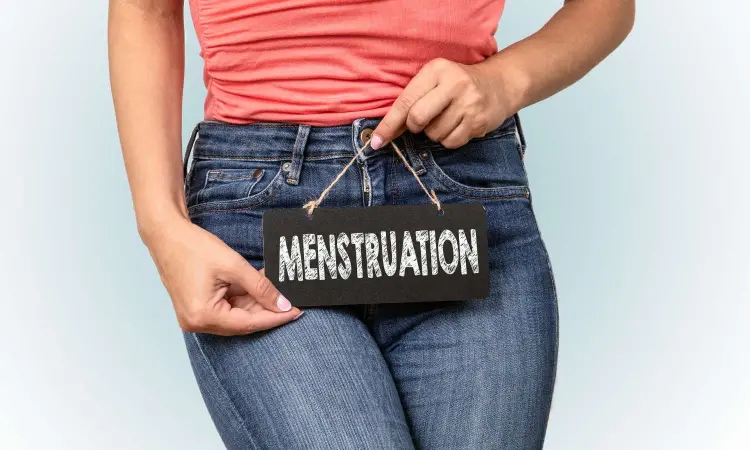- Home
- Medical news & Guidelines
- Anesthesiology
- Cardiology and CTVS
- Critical Care
- Dentistry
- Dermatology
- Diabetes and Endocrinology
- ENT
- Gastroenterology
- Medicine
- Nephrology
- Neurology
- Obstretics-Gynaecology
- Oncology
- Ophthalmology
- Orthopaedics
- Pediatrics-Neonatology
- Psychiatry
- Pulmonology
- Radiology
- Surgery
- Urology
- Laboratory Medicine
- Diet
- Nursing
- Paramedical
- Physiotherapy
- Health news
- Fact Check
- Bone Health Fact Check
- Brain Health Fact Check
- Cancer Related Fact Check
- Child Care Fact Check
- Dental and oral health fact check
- Diabetes and metabolic health fact check
- Diet and Nutrition Fact Check
- Eye and ENT Care Fact Check
- Fitness fact check
- Gut health fact check
- Heart health fact check
- Kidney health fact check
- Medical education fact check
- Men's health fact check
- Respiratory fact check
- Skin and hair care fact check
- Vaccine and Immunization fact check
- Women's health fact check
- AYUSH
- State News
- Andaman and Nicobar Islands
- Andhra Pradesh
- Arunachal Pradesh
- Assam
- Bihar
- Chandigarh
- Chattisgarh
- Dadra and Nagar Haveli
- Daman and Diu
- Delhi
- Goa
- Gujarat
- Haryana
- Himachal Pradesh
- Jammu & Kashmir
- Jharkhand
- Karnataka
- Kerala
- Ladakh
- Lakshadweep
- Madhya Pradesh
- Maharashtra
- Manipur
- Meghalaya
- Mizoram
- Nagaland
- Odisha
- Puducherry
- Punjab
- Rajasthan
- Sikkim
- Tamil Nadu
- Telangana
- Tripura
- Uttar Pradesh
- Uttrakhand
- West Bengal
- Medical Education
- Industry
Nutrient-dense ketogenic diet improves menstrual health in obese pre-menopausal women, reports study

A new study revealed that weight loss through dietary changes can lead to positive physiological shifts in women, particularly regarding menstrual health. The research published in PLOS ONE journal compared a ketogenic diet (KD) to a low-fat diet (LFD), highlights unique benefits of ketosis on self-reported menstrual cycles in overweight and obese pre-menopausal women.
This 6-week study focused on 19 women aged 34 (±10 years) with an average BMI of 32.3 (±2.7 kg/m²). The participants were divided into 3 groups where one followed a well-formulated KD (~75% of energy intake from fat), one more supplemented either with ketone salts (KS) or a placebo (PL) and the other group followed an isocaloric, low-fat diet. All meals were precisely prepared to ensure consistency across participants. Self-reported changes in menstruation, along with body weight, composition, and blood markers, were monitored bi-weekly.
Both diets led to significant weight loss, with an average decrease of 7 kg (15.4 lbs), primarily from fat mass (-4.6 kg; ~10 lbs). The participants in both groups also saw improvements in insulin sensitivity and serum lipids, key markers of metabolic health. The fasting blood glucose and inflammatory markers did not differ significantly between the groups. However, the participants on the KD experienced a notable rise in fasting beta-hydroxybutyrate levels (a marker of ketosis), regardless of supplementation.
About 30% of women on the KD+KS regimen and 43% on the KD+PL regimen reported increased menstrual frequency and intensity after just two weeks. Also, a third of KD participants who had not menstruated for over a year regained their cycles after 28 days. None of the women on the LFD reported changes in their menstrual cycles, suggesting a unique hormonal or metabolic effect of the ketogenic diet beyond weight loss.
The study emphasized the potential significance of these findings for women facing menstrual irregularities, particularly those linked to metabolic disorders or obesity. While the exact mechanisms remain unclear, the nutritional ketosis appears to interact with hormonal pathways in a way that promotes menstrual health.
This research not only reaffirms the efficacy of both low-fat and ketogenic diets for weight and metabolic improvements but also points to the distinct benefits of ketosis on female reproductive health. Overall, women seeking benefits from weight loss might consider a nutrient-dense ketogenic diet as a potential option under medical guidance.
Source:
Kackley, M. L., Buga, A., Brownlow, M. L., O’Connor, A., Sapper, T. N., Crabtree, C. D., Robinson, B. T., Stoner, J. T., Decker, D. D., Soma, L., & Volek, J. S. (2024). Self-reported menses physiology is positively modulated by a well-formulated, energy-controlled ketogenic diet vs. low fat diet in women of reproductive age with overweight/obesity. In L. Yanes Cardozo (Ed.), PLOS ONE (Vol. 19, Issue 8, p. e0293670). Public Library of Science (PLoS). https://doi.org/10.1371/journal.pone.0293670
Neuroscience Masters graduate
Jacinthlyn Sylvia, a Neuroscience Master's graduate from Chennai has worked extensively in deciphering the neurobiology of cognition and motor control in aging. She also has spread-out exposure to Neurosurgery from her Bachelor’s. She is currently involved in active Neuro-Oncology research. She is an upcoming neuroscientist with a fiery passion for writing. Her news cover at Medical Dialogues feature recent discoveries and updates from the healthcare and biomedical research fields. She can be reached at editorial@medicaldialogues.in
Dr Kamal Kant Kohli-MBBS, DTCD- a chest specialist with more than 30 years of practice and a flair for writing clinical articles, Dr Kamal Kant Kohli joined Medical Dialogues as a Chief Editor of Medical News. Besides writing articles, as an editor, he proofreads and verifies all the medical content published on Medical Dialogues including those coming from journals, studies,medical conferences,guidelines etc. Email: drkohli@medicaldialogues.in. Contact no. 011-43720751


